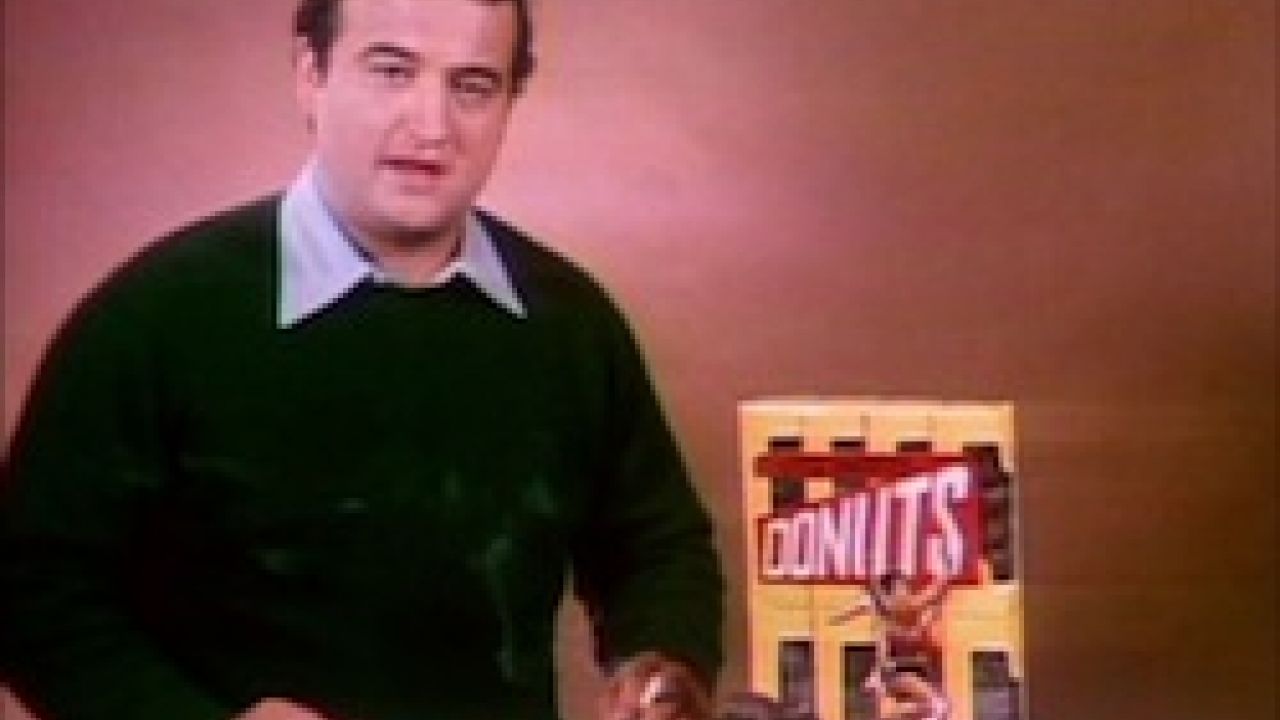
Thirty-four years ago, Saturday Night Live’s ad parody, Little Chocolate Donuts, seemed like absurdist comedy. But the iconic John Belushi bit – co-written by current Minnesota Senator Al Franken – is now a sad reality. Parents have good reason to worry about the sugar content of children’s breakfast cereals, according to an Environmental Working Group review of 84 popular brands.
EWG’s analysis found that most children’s cereals fail to meet the federal government’s proposed voluntary guidelines for foods nutritious enough to be marketed to children. Sugar is the top problem, but many breakfast products also contain too much sodium or fat or not enough whole grains. The bottom line: Most parents say no to dessert for breakfast, but many children’s cereals have just as much sugar as a dessert – or more.
A deluge of media reaction followed, including Brian Williams reporting on NBC’s Nightly News on one observer’s reaction that EWG’s report on kids’ breakfast cereals “made bacon look healthy.” The Today Show implored parents to pay attention to ingredient labeling. CNN’s piece noted that our study “found that some popular cereals even have more sugar than chocolate chip cookies or Twinkies!”
The New York Times’ parenting blog, Motherlode, took an in depth look at the report, as did Times’ columnist Mark Bittman:
Regardless of the industry, self-regulation is a joke. What our kids are eating, on the other hand, is serious. And changing what they eat is going to require mandating – not requesting – the way that the junk food industry is allowed to manipulate them. The most important meal of the day is as good a place as any to start.
Sugar wasn’t the only problem found by the Washington, D.C.-based EWG, a nonprofit research and advocacy group focused on public health and the environment. Others were found to exceed proposed government nutrition guidelines: 10 cereals had more than 210 milligrams of sodium and at least 26 cereals were not predominantly whole grain.
The Washington Post produced an excellent slideshow on the cereal report, as did the Huffington Post. Other daily papers that weighed in on the impact of sugary cereals included the Baltimore Sun, the Boston Herald and the St. Louis Post Dispatch. On the web, there was comprehensive commentary on the report on Yahoo News, Ecocentric and the Food Network blog.
Other top-notch food writers and outlets took notice as well. Tom Laskaway wrote in Grist:
A while back, in a post called “In defense of candy,” I observed that the problem with our food system isn’t the obvious treats like candy; after all, “the typical American gets only 6 percent of their added sugar from candy.” The real problem is the “candification” of our food system. And this report from EWG provides even more evidence.
Kiera Butler wrote in Mother Jones:
I’d always kind of thought that the demise of Ice Cream Cones Cereal proved that even stressed-out parents wouldn’t go for such an unapologetic nutritional disaster. But boy was I wrong! In perusing a new report on sugar cereals from the Environmental Working Group, I learned about many modern cereals my seven-year-old self would have been clamoring for, including Smorz, Froot Loops Marshmallows and Cap’n Crunch’s OOPS! All Berries.
Michele Simon writing in Food Safety News, said:
The processed food industry must be scared that such a popular and well-resourced organization as the Environmental Working Group is now taking aim at them. (The group boasts more than 1 million supporters.) In my inbox this morning arrived a very defensive email from the Children’s Food and Beverage Advertising Initiative, the lobbying group that defends Big Food by touting their responsible marketing to kids. They claim:All of the cereals our participants currently may advertise to children are wholesome, containing a rich package of vitamins and minerals, such as calcium, fiber, vitamin D and iron. More than 60% contain at least a half serving (8 grams) of whole grains per serving. These cereals are an excellent breakfast choice, particularly when consumed with low fat or skim milk and fruit.
Not to waste too much time deconstructing this silliness, but really, “wholesome”? When you have to dig that deep for such a BS term you know you’re in trouble. And that “rich package” of vitamins is added back in artificially after the companies strip all the natural nutrients. Finally, note the qualifier, “may advertise to children,” to presumably set apart brands like Honey Smacks as outliers. Except that it’s not.
But some people just don’t get it. The Fox News show Red Eye (whatever that is) put the report up for comment by its panel, which includes former Bush White House intern Kayleigh McEnany. McEnany blithely dismissed concerns about sugar-saturated cereals by saying, “It’s all free market, you can choose the celery or you can choose the Trix Are For Kids.”
McEnany’s “free market argument” conveniently ignored the decades of market-distorting federal agriculture subsidies that have helped food processors make huge profits from the artificially cheap raw materials that fuel American’s badly broken industrial food system.



